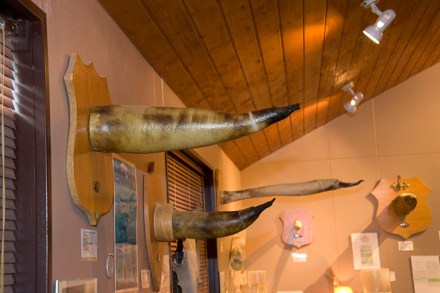The making of Kew’s Palm House
40 min listen
In this week’s books podcast my guest is Kate Teltscher, who tells the fascinating story of one of the greatest showpieces of Victorian Britain: the Palm House in Kew Gardens. Though the gardens and their glassy centrepiece are now a fixture of London’s tourist map, as her new book Palace of Palms reveals, they very nearly weren’t. She tells me how a team of brilliant mavericks used cutting-edge science and engineering to build one of the greatest constructions of its era… in just the wrong place. With walk-on parts for Darwin, Humboldt and Alfred Russel Wallace, she reveals the way in which Victorian botany extended its tendrils through the whole





















